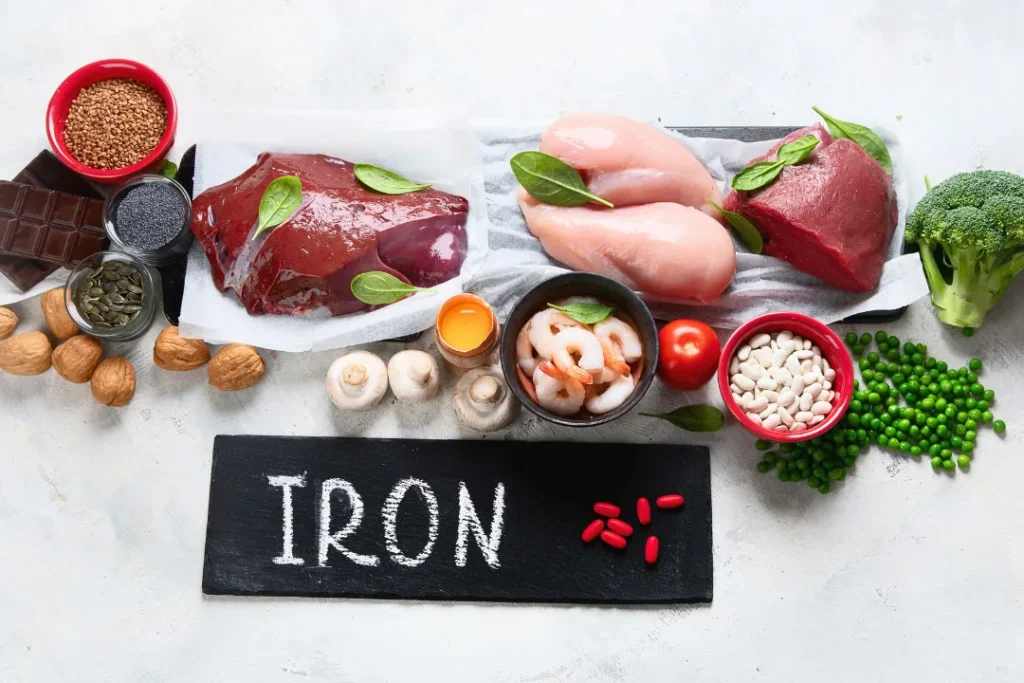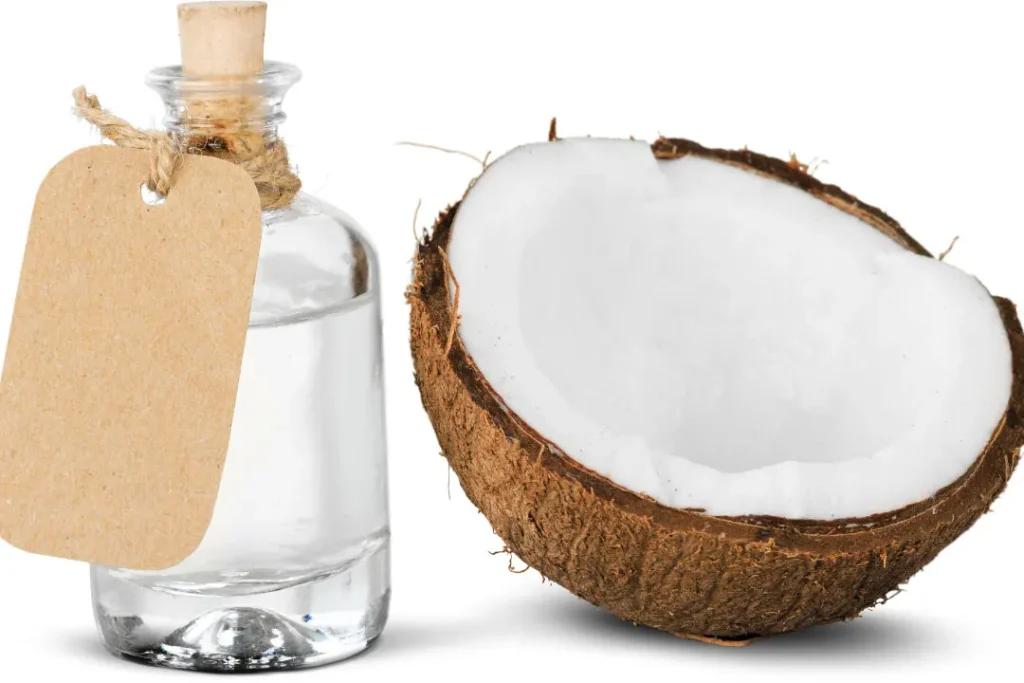The coconut fruit is native to the Indo-Pacific region, and has long been a mainstay in many cultures’ cuisines. It is the fruit of the coconut palm tree and provides a considerable amount of nourishment as well as a variety of health advantages. This article looks at the origins of coconut, its health benefits, potential side effects, interactions, optimal dosage, and recommended practices for supplemental intake.
You May Also Like:
5 Great Nootropic Herbs for Focus and Mental Clarity
5 Great Nootropic Herbs for Energy, Focus, and Productivity
Coconut: Benefits, Dosage, Side Effects, Drug Interactions, and Other Important Information is an original (NootropicsPlanet) article.
The Nature of Coconut
While most of us are familiar with the internal white “meat” and milk or water, the coconut also supplies a variety of products, including oil and flour. Carbohydrates, lipids, proteins, vitamins C, E, B1, B3, B5, and B6, and minerals such as iron, selenium, salt, calcium, magnesium, and phosphorus makeup its composition. If you are vegan, it is also important to note that coconuts are high in fiber and can be a fantastic source of plant-based protein.
Coconut’s main fats are medium-chain triglycerides (MCTs), mainly lauric acid, offers many health benefits.

Health Benefits of Coconut
According to some research, the MCTs in coconut can help lower “bad” LDL cholesterol levels while increasing the “good” HDL cholesterol, which enhances heart health.
Weight Control: When compared to the same number of calories from longer chain fats, MCTs in coconut can increase your energy expenditure, which can assist in weight loss.
Digestion: By adding volume to the stool and encouraging regular bowel movements, coconut fiber aids our digestive health.
Brain Health: According to certain research, MCTs can be beneficial for brain diseases such as epilepsy and Alzheimer’s.
Immunological Function: Lactic acid possesses anti-bacterial and anti-inflammatory properties, which can aid in your immune function health.

Chemistry of Coconut
Coconut is a complex fruit with a distinct chemical composition. The edible “meat” of the coconut contains mostly water, carbohydrates, and lipids, with a little protein thrown in for good measure. The fat content, which is largely saturated fat, is especially noticeable, with medium-chain triglycerides (MCTs) like lauric acid playing a significant role.
Dietary fiber and many vitamins and minerals are also important components of coconut meat. B-vitamins (particularly folate) and minerals such as potassium, iron, and magnesium are primary examples.

Physiological Properties of Coconut
The health advantages claimed to coconuts and their derivatives are mostly due to their distinct chemical composition and the resulting physiological responses:
- Heart Health: MCTs found in coconuts, notably lauric acid, have been shown to alter the lipid balance in the blood. Lauric acid boosts HDL (the “good” cholesterol) more than LDL (the “bad”) cholesterol, potentially increasing the total cholesterol ratio, which is a critical indicator of cardiovascular risk.
- Weight Control: MCTs in coconut are digested differently than other fats. They are taken immediately from the digestive tract to the liver, where they can be used as a fast energy source or be converted into ketone bodies. This can lead to higher energy expenditure and satiety, which may benefit you in weight management.
- Digestive Health: Coconut’s dietary fiber provides bulk to the stool and supports regular bowel movements, promoting overall digestive health.
- Brain Health: Coconut MCTs can be turned into ketone bodies, which act as an alternative energy source for your brain. This feature has spurred interest in treating brain diseases by using MCTs. These illnesses include epilepsy and Alzheimer’s disease, while more research is needed in this area.
- Immune Function: Antimicrobial effects of lauric acid have been researched, and it eliminates dangerous pathogens such as bacteria, viruses, and fungi, potentially assisting your immune system.
As we continue to uncover the scientific elements of coconuts’ impact on our health, it becomes obvious that, when balanced with other nutritional demands, consumption of this tropical fruit can be an addition to a plentiful diet.
Optimal Dosage of Coconut
Because the type consumed (whole, oil, flour, etc.) and because our individual dietary requirements vary, there is no standard suggested dosage for coconut. The American Heart Association, on the other hand, suggests that saturated fats, including those present in coconut, should not exceed 5-6% of total caloric consumption.

Side Effects of Coconut
Coconut is generally safe to consume. However, due to its high fiber content, excessive consumption can cause digestive troubles, and excessive use of coconut oil can cause elevated cholesterol levels due to its high saturated fat content. If you are allergic to coconuts, you should avoid it completely.
Potential Substance Interactions with Coconut
Currently, there is little research on the potential drug interactions with coconut. Because coconut oil can raise cholesterol levels, it can interfere with cholesterol-lowering drugs. Before making significant dietary changes, you should always consult with your healthcare physician.
Responsible Use of Coconut
When including coconut into your diet, keep in mind its high calorie and saturated fat content. While MCTs in coconut oil have a number of health benefits, they should not account for the majority of your fat consumption.
You should be cautious of your choices. Virgin coconut oil, for example, is often a better choice than refined coconut oil since it retains more of the therapeutic ingredients.
Coconut:
Conclusion
To summarize, while coconut has a variety of nutritional benefits, its optimal consumption should be part of a balanced, diverse diet. Before incorporating coconut into your diet, make sure that you take into account your specific health situation and dietary needs. More research will undoubtedly shed light on the complex effects of this tropical fruit in your health.
References:
- Coconuts: In-depth. Retrieved from:https://www.hsph.harvard.edu/nutritionsource/food-features/coconut-oil/
- Coconut Oil: Benefits, Uses and Side Effects. Retrieved from https://www.webmd.com/vitamins/ai/ingredientmono-1092/coconut-oil
- The Potential of Coconut Oil and its Derivatives as Effective and Safe Antiviral Agents Against the Novel Coronavirus (nCoV-2019). Retrieved from:https://www.ncbi.nlm.nih.gov/pmc/articles/PMC7316435/
Important Note: The information contained in this article is for general informational purposes only, and should not be construed as health or medical advice, nor is it intended to diagnose, prevent, treat, or cure any disease or health condition. Before embarking on any diet, fitness regimen, or program of nutritional supplementation, it is advisable to consult your healthcare professional in order to determine its safety and probable efficacy in terms of your individual state of health.
Regarding Nutritional Supplements Or Other Non-Prescription Health Products: If any nutritional supplements or other non-prescription health products are mentioned in the foregoing article, any claims or statements made about them have not been evaluated by the U.S. Food and Drug Administration, and such nutritional supplements or other health products are not intended to diagnose, treat, cure, or prevent any disease.


